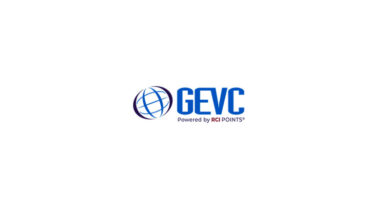Navigating the Tech Tide in Shared-Ownership Industry
The shared-ownership industry and associated hospitality industry are currently experiencing a technological revolution driven by innovations like Artificial Intelligence (AI). This article explores the dynamic landscape of exciting technologies and their application in enhancing the guest experience and improving operational efficiency.
Crafting Unforgettable Experiences
Technology and AI are redefining the guest experience during their interactions with the resort staff. Many people roll their eyes at the common chatbot interactions that respond with repeated and sometimes unapplicable phrases. However, AI is expanding these interactions beyond key-word search and FAQs for low-level issues.
The ability for AI communications to become a ‘knowledgeable employee’ has never been better. In fact, improved automated interactions that resolve guest’s needs allow human agents to focus on more complex or potentially emotion-filled issues to help travelers feel more valued.
AI systems can advise travelers of their extra benefits, answer questions with natural sentences, and allow guests to choose options effortlessly (all without the cost of a live agent). More importantly, AI enhances the agents themselves. Using Natural Language Processing (NLP) to instantly recognize key word and phrases, agents are provided with the top guidance and talking points for various topics to best handle a guest’s needs.
Using contactless check-in applications enhances the arrival experience. Consider SS&C TimeShareWare’s Arrive: This online application simplifies the check-in process before arrival or using a kiosk at the property, without downloading and installing a mobile app. From a pre-arrival welcome email (using TimeShareWare’s Email Module) with the Arrive link, a guest can agree to Terms and Conditions of their stay, provide arrival information, view associated rates, and upload important documents. Upon arrival at the front desk, guests can receive keys from a dedicated agent, bypassing long lines and quickly beginning to enjoy their vacation – all while reducing costs and delays.
Related: Designing a Guest Experience With TECHNOLOGY!
Next are virtual concierges and AI-driven chatbots. An example is the Virtual Concierge from Briguest providing seamless, 24/7 guest support. A voice-activated (think Alexa®) tablet or mobile device can understand and respond in the guests’ native language. Guest searches for products and services, housekeeping or room service requests, or the up-selling and cross-selling different activities, restaurants, and amenities becomes simplified.
An existing communication channel being enhanced to assist guests is texting. In one example, analysis for a collection of resorts not utilizing texting showed managers that thousands of texts were being sent to their main number – unanswered. ConnectionsGT texting services enabled texting to the main number. With the addition of an interface to TimeShareWare’s PMS, a simple welcome text to guests upon check-in generated hundreds of communications. More importantly, each text response removed an average three-minute call to a live agent. For the 1,200 conversations in the analysis period, almost 60 hours of agent time were saved or reallocated to other functions.
The story doesn’t stop there. ConnectionsGT is taking this to a new level with a shared inbox for text queuing with AI analysis routing text messages directly to appropriate departments. A human switchboard operator is not required to distribute requests for basic services like additional towels, replacing light bulbs, or confirming checkout times. The automated responses produce faster replies while the few exceptions are handled by an employee. Each step drives to one thing: Increased Guest Satisfaction!
Lastly, sentiment analysis can provide categorized feedback from social media platforms to show negative, neutral, and positive sentiments about guests’ experiences. Presenting this analysis over time can show trends correlated to marketing efforts or customer service initiatives. An example would be sentiment analysis of a group of complementary businesses in a resort’s region watching for emerging trends or patterns not readily apparent in a smaller dataset. AI’s ability to provide sentiment analysis from social media posts, vlogs, and other media extends far beyond the reading of customer comment cards of the past.

The Power of APIs in Hospitality
Application Programming Interfaces (APIs) act as digital bridges, enabling communication between different software systems in the resort’s ecosystem. They break down silos by offering seamless integration in a more connected technological infrastructure.
APIs facilitate innovation, offering enhanced scalability and allowing resort properties to adapt to changing technologies more easily. This reduces development time, which provides a competitive edge in the fast-paced industry.
RESTful services are known for their simplicity and align well with web-based applications most needed in the hospitality sector. For example, TimeShareWare’s Enterprise product is fully RESTful API-based, allowing real-time integration into all functionality of the core platform which provides consistency and flexibility for the evolving needs of modern resorts.
On The Horizon
Future AI integrations could allow the seamless creation of a reservation booking for owners or rental guests within a chat conversation. There are challenges to overcome to address the unique and sometimes complex timeshare-resort booking rules (e.g., handling usage years, etc.)
Imagine technology that allows guests to register their biometrics during the check-in process. Once securely registered, access to their rooms happens through facial recognition, removing the need for keycards or even mobile apps.
Lastly, AI will improve the guest experience in both natural language speech recognition and language translation tools that are incredibly accurate and realistic. Although in its infancy , the prospect of allowing guests to chat or converse (using NLP) in their own language can bring a level of comfort and trust to guests seeking answers to their questions.
Conclusion: Navigating the Future of Hospitality Technology
Through the on-going, transformative impact of AI and API technologies, timeshare resorts and management companies must take advantage of new ways to improve the guest experience, increase efficiencies, and reduce costs. Much of this technology is available today with more coming soon which means resorts must be aware of these technologies and their benefits – or risk being left behind.
Mike Norton, Director -Client Relations and Dane Ashworth, Director of Consulting are from TimeShareWare, the industry leader in shared-ownership software. Please contact Mike at (509) 645-2099 or mike.norton@timeshareware.com.
1 https://www.superstaff.com/blog/ai-vs-customer-service-agents-are-humans-replaceable/
2 https://www.cxtoday.com/contact-centre/what-is-agent-assist-technology-and-why-is-it-so-important/
3 https://www.briguest.com/en/
4 https://www.connectionsgt.com/
5 https://www.idcentral.io/the-future-of-hotel-check-ins-facetraces-facial-recognition-technology/
6 https://fastdatascience.com/multilingual-natural-language-processing/



